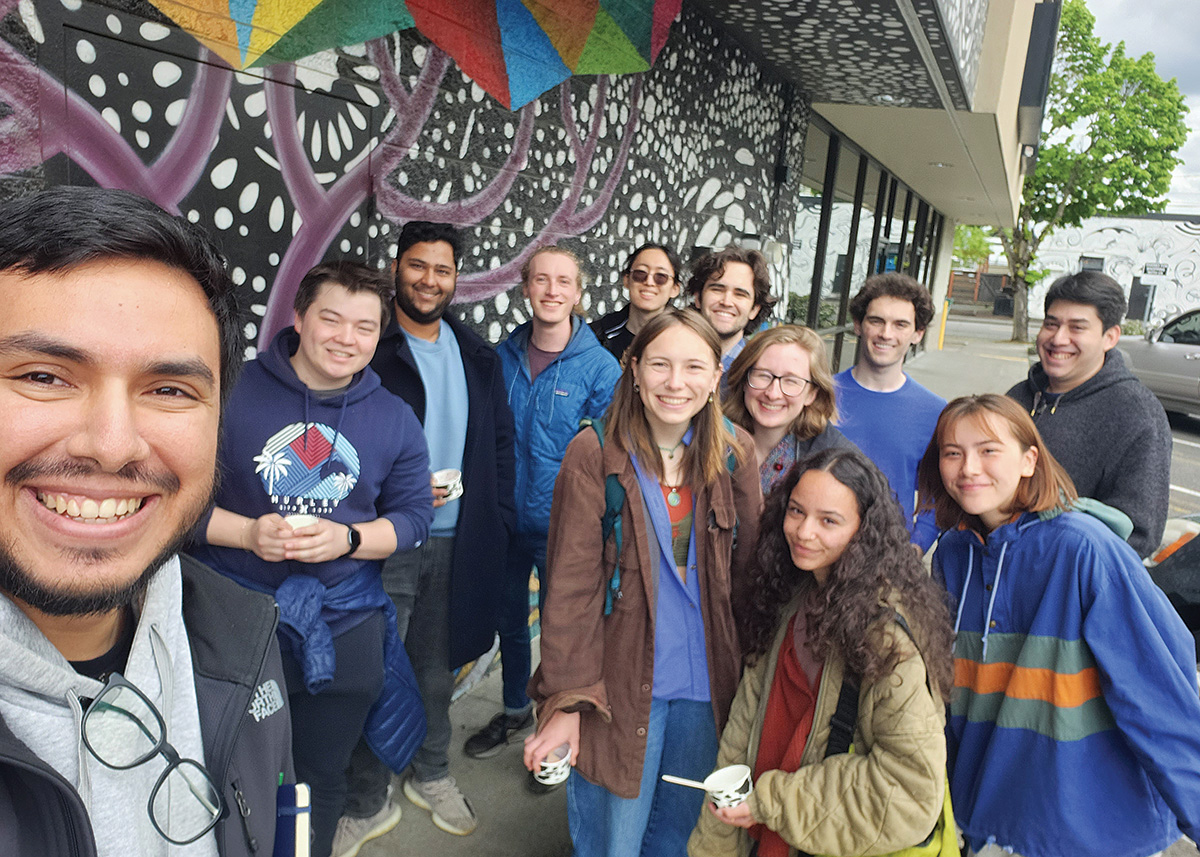Chemistry Prof Wins Grant to Advance Research on Molecular Crystals
Gonzalo Campillo-Alvarado has been awarded a three-year grant from the M.J. Murdock Charitable Trust.
Respiratory diseases—which spiked with COVID-19—are often treated in hospitals with invasive methods that make monitoring difficult and expensive. But Reed researchers, led by Assistant Professor of Chemistry Gonzalo Campillo-Alvarado, are working on technology that could change that. Their work just got a boost from the M.J. Murdock Charitable Trust’s College Research Program for Natural Sciences. The three-year grant will support Campillo-Alvarado’s research team in their work on flexible molecular crystals for use in medical technology.
The team comprises 11 Reed researchers, both students and recent alumni, as well as a postdoctoral scholar. The grant will support postbaccalaureate researchers to assist students with instrumentation and lab techniques. It will also support upgrades to the lab’s optical microscope so it can measure optical and physical changes in flexible materials.
The team aims to design and make crystals based on molecular sensors that can bend and respond to physical or chemical stimuli. Molecular crystals are known to be brittle by nature, but Campillo-Alvarado’s group will use an emerging technology called “cocrystallization,” which installs molecular “lubricants” into crystals using weak intermolecular forces to make them flexible.
The ultimate goal is to incorporate crystalline sensors into wearable health-monitoring devices to provide remote, portable, and timely access to medical diagnoses. Patients with respiratory diseases, for instance, could use small devices adhered to the skin to accurately monitor body temperature and carbon dioxide. This would offer ready information on the patient’s breathing cycles and respiratory condition.
Campillo-Alvarado says he’s thrilled: “The grant from the Murdock Trust will enable us to expand the horizons of molecular crystals as sensors for human health in an undergraduate-fueled research environment.”
Since 2018, the Murdock Trust has awarded more than $1.4 million in grant money to Reed. Campillo-Alvarado previously received a research startup grant from the trust, an award that aims to supplement startup costs for new faculty positions in the natural sciences at undergraduate institutions.
Tags: Awards & Achievements, Professors, Research
